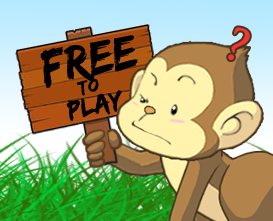In the show Celebrity Rehab, Heidi Fliess (The Hollywood madam) was asked “What is prostitution?”
She answered “The control of money in your life.”
In 2006 I opened a table top gaming retail store called Hobby Kingdom. At the time a plastic miniatures game called HorrorClix was very popular, so a supplier tried to get us to carry the line. My purchaser looked at the product and decided it wasn’t good for people to play the game, it had no redeeming value to it, so we wouldn’t carry it. The supplier was shocked we wouldn’t carry a top selling product line in our store. He challenged us numerous times to carry it, and finally said “Aren’t you in the business to make money?!” Our answer was “Yes, but not at any cost.”
A friend recently sent me an article called “The Fall of Angry Birds” in which Trey Smith details how the app store phase of paying money up front for a game (commonly called Premium Games) has fallen to the wayside of a new model called “Free to play” (or commonly called Freemium).
So what is “Free to play”? These kinds of games give you the whole game for free, but you cannot get very far, or be very successful, or it takes inordinate amounts of time, unless you purchase additional virtual goods (typically in game currency). Many of these games are time based; a player action may take 24 hours of waiting to complete, but if you pay 14 cents that action can be done right now and play can continue.
Free to play games are the new game industry buzz. Facebook games pioneered it, and now it is coming to app stores and even consoles like the Ouya require all games be free to play. .
Trey’s article contrasts the first angry birds, historically always in the top 10 of the itunes app store now #52, to the top grossing games like Dragon Vale which are free to play but generate $12 million a month through sale of virtual goods.
As an indie game developer, looking to grow, this is a very attractive proposition. Whether through blogs, books, or GDC keynotes, everywhere I turn someone is talking about the benefits of this new model and how if you aren’t doing it, you’re a fool for missing the boat!
I think we need to ask the question at the heart of Jurassic Park: “We’re so busy asking if we could, we forgot to ask if we should?”
Recently, I have played SimCity Social on facebook. This new EA game has been the most compelling freemium game I have played. I was moments from opening my wallet to buy some virtual goods, but I didn’t. The reason is once I start buying virtual goods, I’ll probably keep buying virtual goods. And the game is almost unplayable without it. I didn’t want to get on the bus for the whole ride, so instead I quit playing the game altogether. I saw it as any addiction, it starts with a minimal consenting step, but turns into an unwitting long term commitment. The term “you can quit at any time” has an eerie ring to it doesn’t it?
Secondly, I dislike these games because they aren’t really games! I have minimal fun, and then suddenly a call to action to buy something. They are as much a game as a slot machine is a game. Do they require skill? Generally not, as money typically makes up for skill or skill isn’t a factor. The energy that could go into game design is instead put into “relying on compulsion psychology”.
Thirdly, in an address to Rice university students, game designer Jonathan Blow (maker of Braid) argues the game makers themselves do not like the games they are making. World of Warcraft can be very addictive. Some Taiwanese have even died from all day play sessions. Whether or not you like WoW, the people who are making it do. This has artistic integrity in the designers. From Jonathan’s observations, and my own conversation with a designer at a popular facebook game company, the people making it would never play it. They actually hate it. This is the same mentality the Chinese toy manufacturer used when incorporating lead paint for north American toys: “I wouldn’t use it, but you can!” In other business models the player is elevated, in this one they are degraded.
Mirthwerx will not create these “free to play make you pay” games. We will continue to spend our time, energy, and R&D on new and unique play experiences. We will explore different models like in-app purchase, unlocks, and ad based games, but only when it makes sense to the game. We still believe in putting the player experience first and THAT will lead to financial success.
I believe this free to play model is a fad because it lacks integrity. It will not stand the test of time. That doesn’t mean no game will ever use it in the future, just that players will be fed up and look for better experience. Then the industry will move on to some other new trend.
And what happened with HorrorClix? After a big Christmas that year, around March the fad had died out. Retailers slashed prices to get rid of the deadweight. We, fortunately, were protected from the fallout of a collapsing fad.
So, what do you think?
Think we are missing a huge opportunity?
How do you like the free to play model? Have you had positive and/or negative experiences with it?
We’d love to hear from you!




